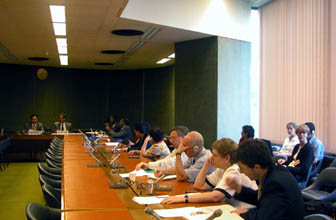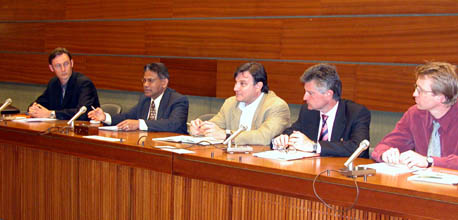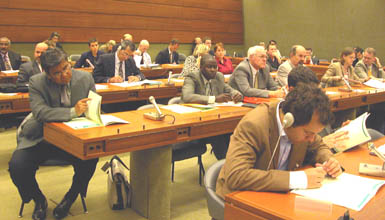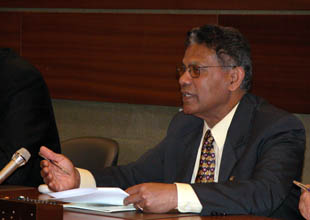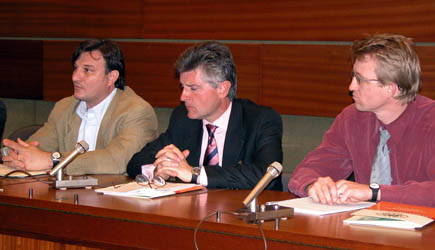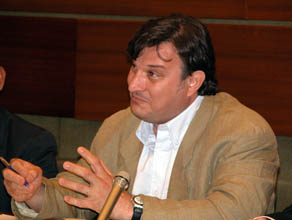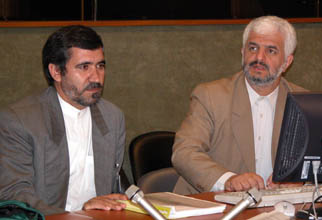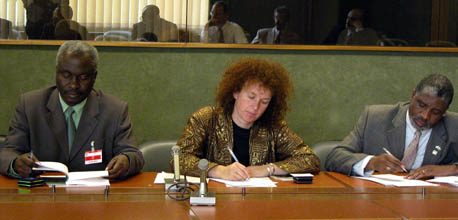|
|
| MAINTAINING
FOREST COVER: |
|
|
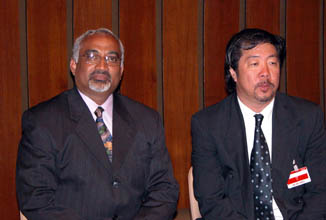
Fiji, on behalf of the Pacific Islands Forum Group, stressed the
importance of non-timber forest services such as fuel, medicines and
soil and water protection, and called for the development of
partnerships through the UNFF process to address the problem of the
region's limited financial and human resources.
|
|
|
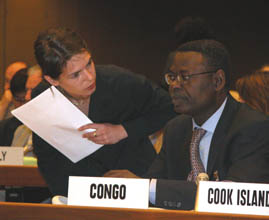
CONGO noted that difficulties with policy implementation are due to
a lack of human and financial resources, and called for more funding for
land use projects and protected areas.
|
|
|
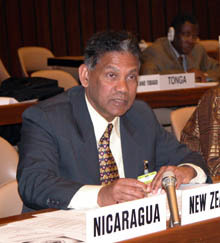
NEW ZEALAND stressed the long-term investments needed to develop
policies, legislation, management practices, and the political will to
deliver SFM. |
|
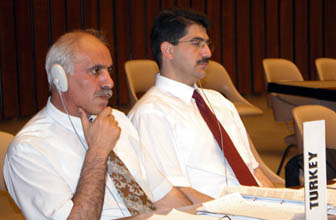
TURKEY stressed the need to focus on the important role of non-wood
forest products in GNP and poverty alleviation challenges.
|
|
|
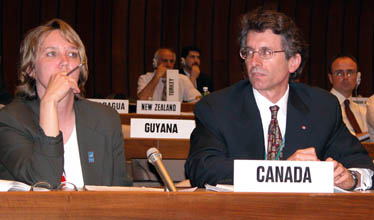
CANADA
supported the need for NFPs and other national strategies relevant to
forests, and welcomed suggestions relating to: international assistance; global and regional
studies by FAO and Economic Commision for Europe (ECE);
and criteria and indicators.
|
|
|
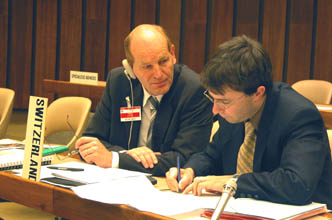
SWITZERLAND detailed its history of sustainable forest management and underlined the necessity of cross-sectoral approaches and the
need to address the undervaluation of forests.
|
|
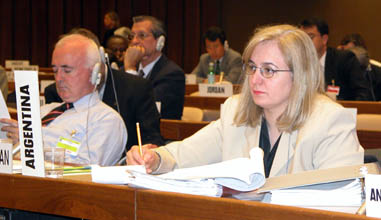
ARGENTINA
described its social forestry programme, which brings together poverty
reduction forestry projects with the aim of working in favor of rural
populations and ensuring their activities are sustainable. |
|
|
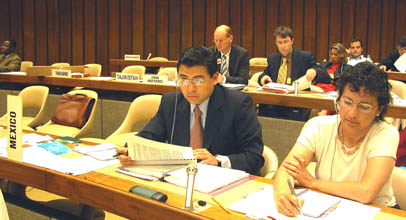
MEXICO described its NFP based on a sectoral approach and emphasized
the role of regional assistance in providing information sharing
mechanisms.
|
|
|
ECONOMIC
ASPECTS OF FORESTS: |
|
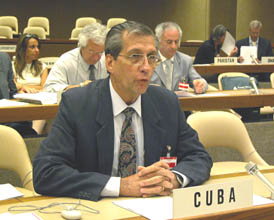
CUBA called for a better balance between public and private sector
involvement in achieving SFM and stressed the need for improved
technology transfer.
|
|
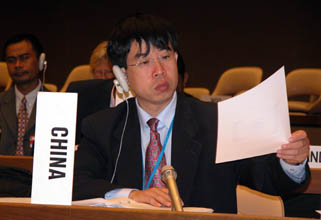
CHINA urged donor countries to fulfill their international
commitments regarding official development aid, technology transfer and
capacity building.
|
|
|
|
|
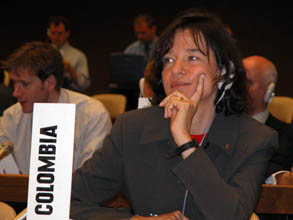
COLOMBIA stressed that more cross-sectoral balance is needed on the
local, regional and global levels in order to achieve SFM, and called
for more investments to ensure the economic competitiveness of SFM.
|
|
|
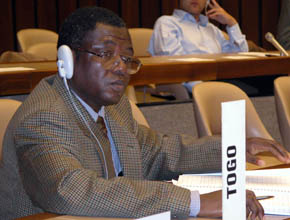
TOGO said more research is needed to design economic instruments
supporting environmental protection, particularly in developing
countries.
|
|
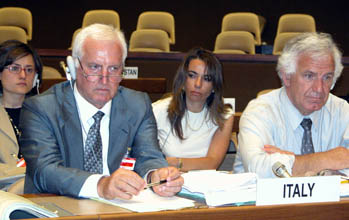
ITALY underlined the importance of an approach integrating EAF into
conservation measures aimed at promoting forest health and productivity.
|
|
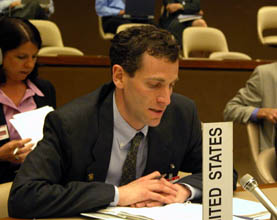
The US stressed the need to: improve MAR with regard to forest
economics; promote legal trade and combat illegal logging; and establish
partnerships to enhance, inter alia, economic development, good
governance, natural resources conservation, and poverty alleviation.
|
|
|
REPORTING
FORMAT:
|
|
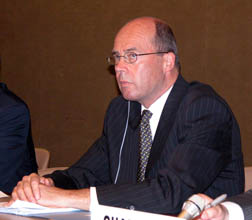
Pekka Patosaari, Coordinator and Head of the UNFF
Secretariat, presented the draft format on voluntary reporting to UNFF-3
prepared in collaboration with the CPF and highlighted the Secretariat's
intention to produce a structured yet flexible format for
reporting.
|
|
| TRUST
FUND: |
|
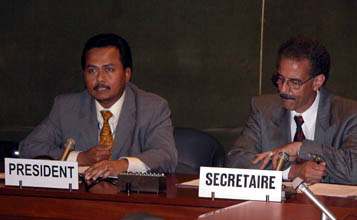
Delegates informally discussed draft resolutions requesting the
Economic and Social Council of the United Nations (ECOSOC) to authorize
the UNFF Secretariat to use the trust fund to support daily subsistence
allowances (DSA) of developing country participants at UNFF sessions. |
|
![]() UNFF-3 in French
UNFF-3 in French![]() Links
to UNFF and Forest Internet Resources
Links
to UNFF and Forest Internet Resources![]() Linkages
Home
Linkages
Home
 United
Nations Forum on Forests, Third Session
United
Nations Forum on Forests, Third Session